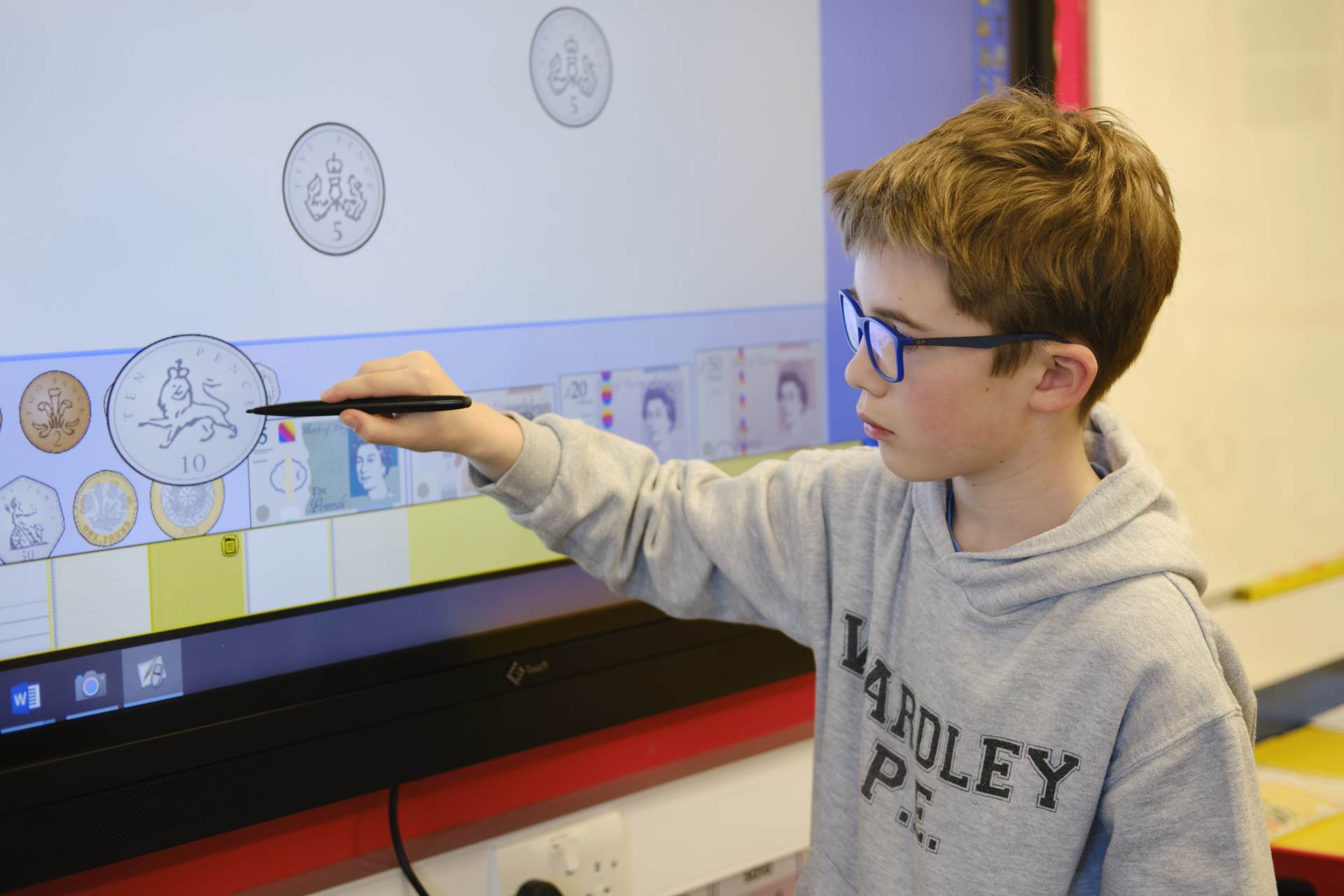Mathematics
At Wardley Primary School, we follow a maths mastery curriculum where every child can learn and enjoy mathematics. Curriculum design ensures a coherent and detailed sequence of essential content to support sustained progression for each child over time. The children’s mathematical learning behaviours are developed such that pupils focus and engage fully as learners who reason and seek to make connections.
Each lesson is designed to link to prior learning to enable all to access the new learning and identifies carefully sequenced steps in progression to build secure understanding. Within lessons, examples, representations and models are carefully selected to expose the structure of mathematical concepts and emphasise connections, enabling pupils to develop a deep knowledge of mathematics. Procedural fluency and conceptual understanding are developed in tandem.
In the classroom, pupils are taught through whole-class interactive teaching, enabling all to master the concepts necessary for the next part of the curriculum sequence. Teachers lead back and forth interaction, including questioning, short tasks, explanation, demonstration, and discussion, enabling pupils to think, reason and apply their knowledge to solve problems. Use of precise mathematical language enables all pupils to communicate their reasoning and thinking effectively. If a pupil fails to grasp a concept or procedure, this is identified quickly, and gaps in understanding are addressed systematically to try and enable them to ‘keep up’. Key number facts are learnt to automaticity, and other essential mathematical facts are learned deeply and practised regularly, to avoid cognitive overload in working memory and enable pupils to focus on new learning. At Wardley Primary, It is hoped that the children’s mathematical journey ultimately equips our pupils with the skills, understanding and self-confidence to positively contribute to society.
The National Curriculum for Maths
Purpose of Study
Mathematics is a creative and highly interconnected discipline that has been developed over centuries, providing the solution to some of history’s most intriguing problems. It is essential to everyday life, critical to science, technology and engineering, and necessary for financial literacy and most forms of employment. A high-quality mathematics education therefore provides a foundation for understanding the world, the ability to reason mathematically, an appreciation of the beauty and power of mathematics, and a sense of enjoyment and curiosity about the subject.
Aims
The national curriculum for mathematics aims to ensure that all pupils:
• become fluent in the fundamentals of mathematics, including through varied and frequent practice with increasingly complex problems over time, so that pupils develop conceptual understanding and the ability to recall and apply knowledge rapidly and accurately
• reason mathematically by following a line of enquiry, conjecturing relationships and generalisations, and developing an argument, justification or proof using mathematical language
• can solve problems by applying their mathematics to a variety of routine and non-routine problems with increasing sophistication, including breaking down problems into a series of simpler steps and persevering in seeking solutions
Mathematics is an interconnected subject in which pupils need to be able to move fluently between representations of mathematical ideas. The programmes of study are, by necessity, organised into apparently distinct domains, but pupils should make rich connections across mathematical ideas to develop fluency, mathematical reasoning and competence in solving increasingly sophisticated problems. They should also apply their mathematical knowledge to science and other subjects.
The expectation is that the majority of pupils will move through the programmes of study at broadly the same pace. However, decisions about when to progress should always be based on the security of pupils’ understanding and their readiness to progress to the next stage. Pupils who grasp concepts rapidly should be challenged through being offered rich and sophisticated problems before any acceleration through new content. Those who are not sufficiently fluent with earlier material should consolidate their understanding, including through additional practice, before moving on.



